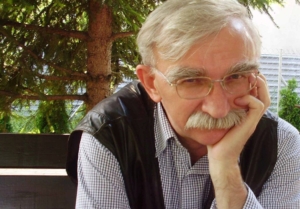Why Do I Do What I Do, Part Two
Why Do I Do What I Do, Part Two
In tonight’s blog post, guest writer Ryszard Chciuk brings us a sequel post: Why Do I Do What I Do, Part Two.
It is a very sad fact; most people have no idea about the meaning of their lives. This is because it is really hard mental work to find it out, and people do not like to overload their brains. As Victor Frankl mentioned in Man’s Search for Meaning, those people are caught in the “existential vacuum”. “They do not even know what they wish to do. For such a man No instinct tells him what he has to do, and no tradition tells him what he ought to do; sometimes he does not even know what he wishes to do. Instead, he either wishes to do what other people do (conformism) or he does what other people wish him to do (totalitarianism)”. Those poor people are very close to you, maybe in the organization you are working for.
During the lectures in Vienna in 1946, Victor Frankl listed the four main reasons a man wants to kill himself. One of them is the lack of faith in the meaning of the rest of life. Such a person can be very near to you.
As I declared in the article Why I do what I do, I believe the person searching for the meaning of his life can be inspired by the mission of the team he is a part of and will adopt it as a kind of response to his problem of not knowing that. And those who already have a sense of meaning will realize that working for the team is helping them to fulfill their lives’ missions.
Following that concept, around twenty years ago, I decided to start the creation of a new after-sales department for Volvo CE in my country by presenting my own professional mission to my new colleagues. I told them:
We provide machine users with the highest machine availability at the lowest cost of operation, by delivering service works exceeding customers’ expectations, and keeping profitability on the level assuring steady development of the service department and securing financial liquidity of our dealership in a downturn in the economy.
When you read my department mission, you could say:
- They are devoted to the well-being of their customers.
- They think customers’ priority is the highest machine availability and the lowest cost of operation.
- They are going to satisfy those needs by lowering the cost of machines’ operation by providing customers with excellent services.
- They are also devoted to the well-being of their dealership.
- They want to earn enough money to develop their service potential and to survive in the market turmoil.
You can ask: and what about employees of the aftersales department, what about colleagues working for other silos? What you are going to do for your suppliers and local society. Will you respect the environment?
I was also not very satisfied with that definition. It was already too long to memorize! We could remove part of the definition regarding earning money, but I wanted to be honest with our customers and also, I wanted to keep our owners as my friends.
It was not the best expression of the idea I lived myself with, expression of my WHY I do what I do. My life’s meaning, my mission was — and still is — to make the world a little bit better than it was when I was born. Despite our saying “with the good intentions the Hell is cobbled”, I immodestly or naively believe it is possible.
That’s why it was a must to develop our vision and the main principles (values). We also had to work intensively on the organizational culture.
As I mentioned in my post Principia for After-sales, Part Two, it was necessary to present the whole idea simultaneously. I used to do it myself in the course of the introductory training for all new employees.
Then, most importantly was to prove to all my direct and indirect subordinates that I would treat those fancy words seriously, despite my personal cost, all the time. Unfortunately, it was rather common within our corporation, that so-called shared missions were not very popular. Other departments did not define clearly their shared missions, visions, and values. As it appeared in the future, it was an overwhelming obstacle.
Let me close by asking you some serious questions please.
- What is your life’s mission?
- What is your purpose?
- What is your WHY?
- Have you already found the meaning for your life?
- Do you intend to spend half of the rest of your life working for an organization without a mission you could share?
- Do you know why some of your subordinates and coworkers do not work with passion and engagement? Will you help them?
As Ron says, the time for your answers is now.

